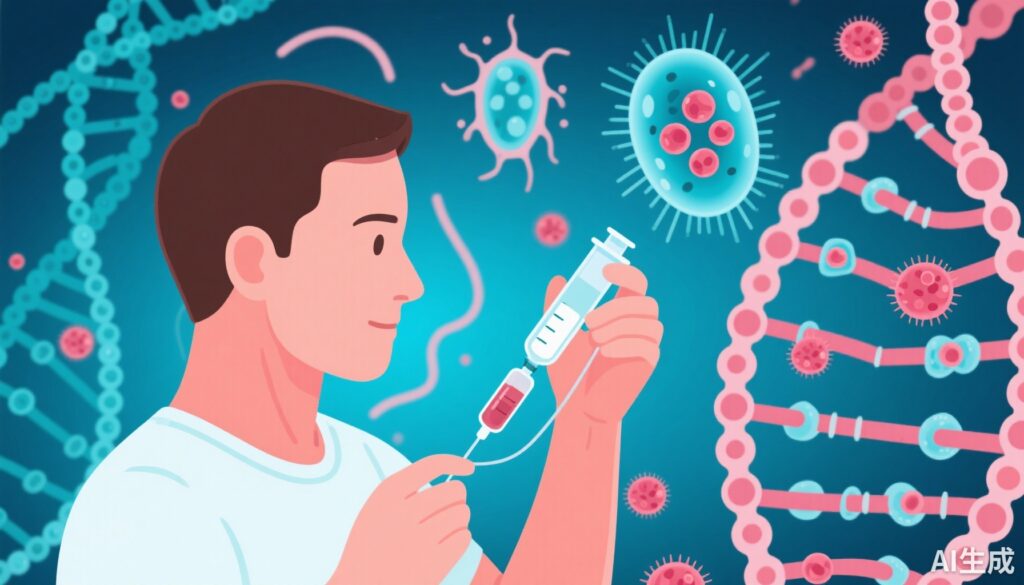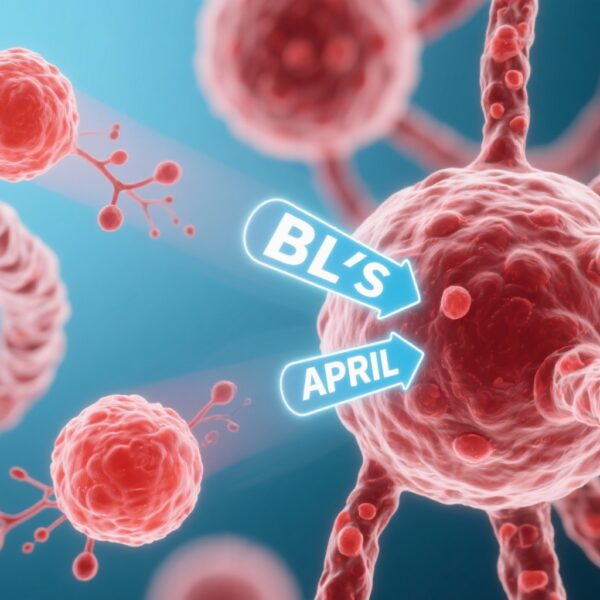Introduction
Severe combined immunodeficiency (SCID) caused by adenosine deaminase (ADA) deficiency is a rare genetic disorder that results in a severely weakened immune system. Without treatment, children with ADA-SCID are vulnerable to life-threatening infections. Traditional treatment options include enzyme replacement therapy and allogeneic stem cell transplants, but these approaches have limitations, such as immune rejection and graft-versus-host disease.
Recent advances in gene therapy have shown promise as a curative approach by correcting the genetic defect directly in the patient’s own hematopoietic stem cells. This article discusses the long-term safety and efficacy of autologous CD34+ hematopoietic stem cell gene therapy using a lentiviral vector, based on a comprehensive cohort study with extended follow-up.
Background and Rationale
ADA deficiency results from mutations affecting the ADA gene, leading to toxic accumulation of adenosine metabolites that impair immune cell development. Traditional treatments address symptoms or replace missing enzymes, but these are often not curative. Gene therapy aims to restore the functional ADA gene within the patient’s own stem cells, enabling continuous enzyme production and immune reconstitution.
Methodology
Between 2012 and 2019, 62 patients with ADA-SCID received autologous stem cell gene therapy in the United States and the United Kingdom. Participants underwent nonmyeloablative conditioning with busulfan, followed by infusion of their ex vivo transduced CD34+ hematopoietic stem cells. These cells were transduced with a lentiviral vector encoding the human ADA gene.
Primary efficacy endpoints included overall survival and event-free survival—defined as survival without the need for additional treatments such as allogeneic stem cell transplantation, enzyme replacement reinitiation, or further gene therapy. Secondary endpoints assessed immunoglobulin replacement therapy, antibody titers against vaccines, and discontinuation of fungal or viral prophylaxis.
Results
The results showed a 100% overall survival rate and a 95% event-free survival rate among treated patients. Notably, all 59 patients with successful gene-marked engraftment at six months continued to be free of enzyme replacement therapy, maintaining stable ADA gene expression, enzyme activity, and immune reconstitution over a median follow-up of 7.5 years.
Furthermore, 58 of these patients (98%) discontinued immunoglobulin replacement therapy and displayed robust immunological responses to vaccines. Importantly, no patients experienced leukemia-like proliferation or clonal expansion of genetically modified cells, indicating the procedure’s safety.
Discussion
This long-term data underscores the durability of gene therapy in restoring immune function in patients with ADA-SCID. The therapy’s safety profile appears favorable, with no significant adverse events related to insertional mutagenesis or clonal dominance observed over the follow-up period.
The ability of patients to discontinue immunoglobulin therapy and respond to vaccinations strongly suggests the therapy results in meaningful immune reconstitution. These findings support gene therapy as a potential curative treatment, reducing reliance on lifelong enzyme replacement or risky transplant procedures.
Conclusion
The study provides compelling evidence that autologous CD34+ hematopoietic stem cell gene therapy using a lentiviral vector offers a safe and durable cure for ADA-SCID. Continued surveillance and further research are necessary to monitor long-term effects and refine treatment protocols, but current results are promising for affected children and their families.
Funding and Disclosures
This research was funded by the National Heart, Lung, and Blood Institute among other sources. The study is registered under ClinicalTrials.gov number NCT04049084.



